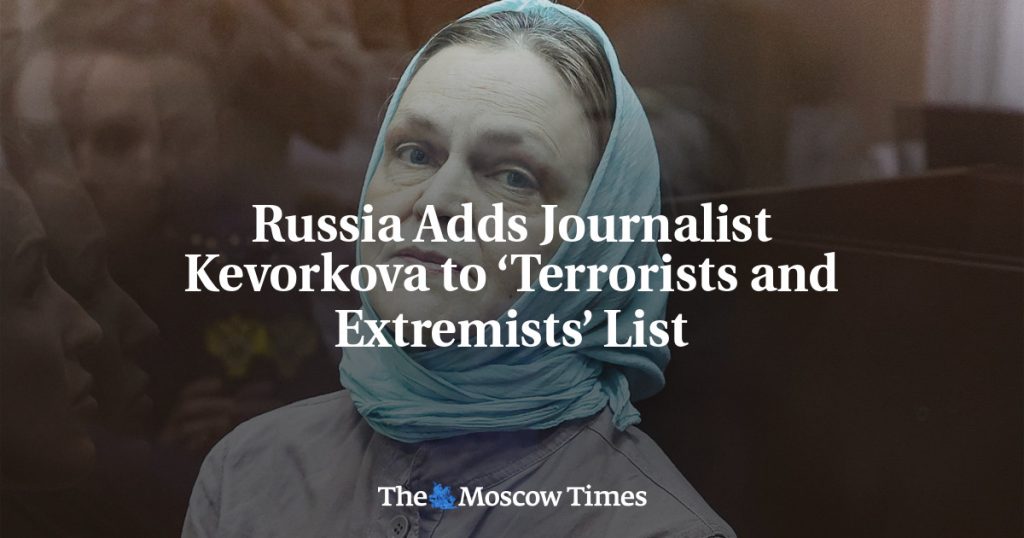Russian journalist Nadezhda Kevorkova has been added to the state financial watchdog Rosfinmonitoring’s list of “terrorists and extremists,” as reported by the state-run news agency TASS. The 65-year-old war correspondent, author, and filmmaker has covered topics related to the Middle East and Russia’s North Caucasus for various media outlets. Last week, a Moscow court ordered her to be held in pre-trial detention until July 6 on charges of “justifying terrorism” due to her social media posts alleged to contain signs of supporting the Taliban’s activities. Kevorkova has denied the accusations, and if found guilty, she could face up to seven years in prison.
Despite her denial, Kevorkova’s situation remains precarious as she awaits trial. Her arrest came shortly after her Telegram channel, focused on news about the Israel-Hamas conflict, went inactive. Being placed on Russia’s list of “extremists and terrorists” not only tarnishes her reputation but also empowers authorities to freeze her bank accounts without the need for a court order. The implications of this move for Kevorkova’s personal and professional life are significant, as it could hinder her ability to access funds and continue her work as a journalist.
The case of Nadezhda Kevorkova highlights the challenges faced by independent journalists in Russia, where government crackdowns on dissenting voices are not uncommon. Kevorkova’s extensive experience in conflict zones and sensitive regions has informed her reporting, but it has also made her a target for authorities suspicious of her work. Her coverage of the Israel-Hamas conflict likely raised concerns among Russian officials, given the country’s complex relationships in the Middle East. The charges of “justifying terrorism” against her may reflect broader efforts to control the narrative around conflicts and to silence critical voices.
As a journalist who has worked for both independent and state-funded media, Kevorkova’s case raises questions about the limits of freedom of expression in Russia. While she has faced accusations of supporting extremist groups, her supporters argue that her reporting is rooted in a commitment to uncovering the truth. The threat of imprisonment for her social media posts sends a chilling message to other journalists in the country, warning them against criticizing government actions or covering sensitive topics. Kevorkova’s case underscores the delicate balance between national security concerns and the rights of journalists to report freely without fear of reprisal.
International organizations and press freedom advocates have expressed concern about Kevorkova’s detention and the potential violation of her rights as a journalist. The use of counterterrorism measures to target journalists and suppress dissent is a troubling trend that has been observed in other countries as well. The Russian government’s actions against Kevorkova may be seen as part of a broader crackdown on independent media and civil society, aimed at consolidating power and stifling opposition voices. Calls for her release and a fair trial have been issued by various groups, emphasizing the need to uphold freedom of the press and protect journalists from harassment and intimidation.
The case of Nadezhda Kevorkova serves as a reminder of the risks faced by journalists who seek to expose the truth and hold those in power accountable. As she awaits trial on charges of “justifying terrorism,” her fate hangs in the balance, with the possibility of a lengthy prison sentence looming over her. The work of independent journalists like Kevorkova is vital in providing accurate information and diverse perspectives on complex issues, yet their safety and freedom are increasingly under threat. The international community must continue to monitor her case closely and advocate for her rights to be respected, in order to safeguard press freedom and ensure that journalists can carry out their work without fear of persecution.


